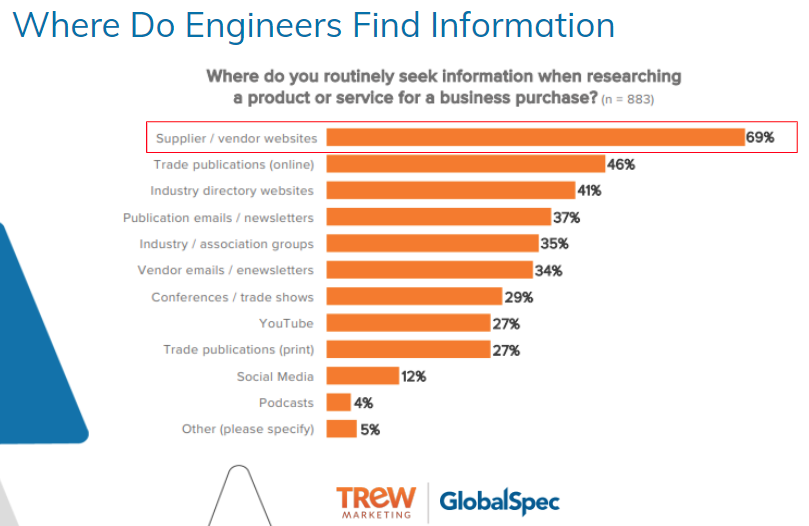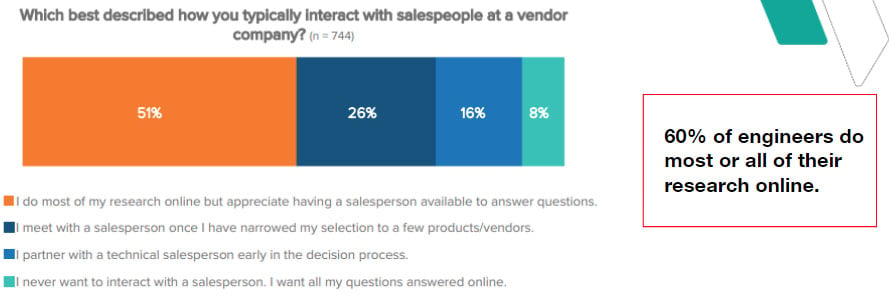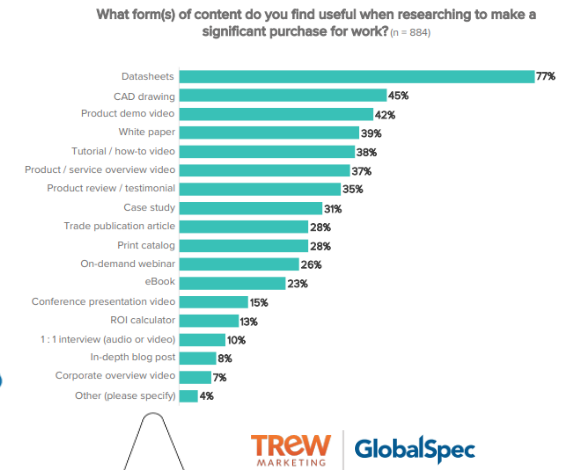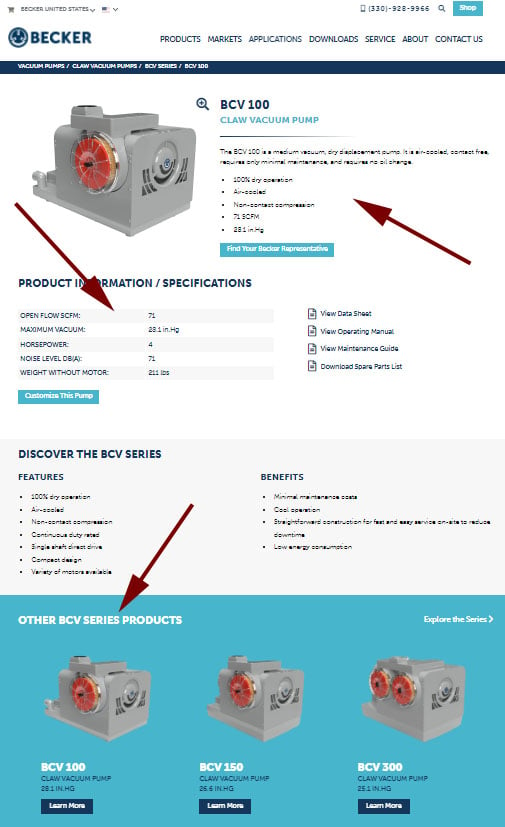Effective websites attract visitors to your pages over competitors’ but a poorly designed or non maintained website can actually drive away prospects. Your website is the face of your business and if done well, is the primary tool for capturing the attention of prospective customers.
Are plant managers and engineers searching online when looking for your products?
We often hear manufacturers and B2B companies state that their target market doesn’t search for products online. Instead, they say, deals are made through existing relationships or at tradeshows. But, data shows that in-person deals in isolation are a myth. In a recent webinar, we shared the below chart from Trew Marketing/GlobalSpec showing that 69% of engineers surveyed seek information on a supplier or vendor website when researching a product or service for a business purchase, and many other digital information sources are used as well.
 So while you may be building relationships in person, your website needs to assist your efforts as well as interact with those you may not reach in-person.
So while you may be building relationships in person, your website needs to assist your efforts as well as interact with those you may not reach in-person.
What Other Digital Platforms Help Engineers Make Buying Decisions?
Before making business purchases, engineers also look to online trade publications (46%) and industry directory websites (41%). They turn to industry publication emails and vendor emails, as well as YouTube and social media. While trade shows and conferences are valuable ways to connect with B2B manufacturers, your website is the 24/7/365 face of your business compared to a few tradeshows each year.
60% of Engineers do most or all of the Research Online
In this survey, most people are still working with a salesperson at some point in the buying process but since 60% say they do most or all of their research online, the information available on the website is critical.

What information are engineers and plant managers looking for when searching the internet?
It is no surprise that people looking for manufacturing equipment want details about the product or service to decide if it will work for their processes. The more details you provide about your product, the better the pages will perform on search engine results pages (SERP).

Information that engineers find useful are types that provide detailed specs on the products such as datasheets, CAD drawings, videos (demo, tutorial, and overview), whitepapers, and reviews. In a recent WebStrategies webinar Howard and Chris demonstrate why product pages should be modeled after the top-performing e-commerce site: Amazon. Product pages on Amazon.com contain large volumes of information for buyers to make a decision. This volume of data for each product also is rewarded by search engine rankings because the more useful information on the page is to a shopper, the better pages do in search results.
Why are reviews, specs, FAQs, and links to similar products useful on an e-commerce site?
Pages with the most abundant and naturally occurring keywords and phrases are prioritized in search results so will be more likely to place your pages closer to the top of the search engine results page as well as be more valuable to your potential customers. Google knows its users want these details so serves them over pages with less content.
How to present manufacturing product details for the best search engine ranking
While datasheets and whitepapers are valuable to the people who are searching for your products, from inbound marketing (SEO) and user perspective, it is important to extract data from a PDF and place it as text on web pages. This gives the search engines pages to scan allowing them to recognize the type of information on your site. That same information on PDFs is not readable by the search engines so they will not reward you for having valuable content by moving up the rank of the page. It is also a suboptimal user experience (UX) to require viewers to take the extra step to click instead of having the information in one place, however, where space is limited, list the highlights on the webpage and then have a link to the PDFs for those interested in the very minute details.
The Details are What Sells
Providing as many product-specific details as possible to prospective clients will have positive effects on both your conversation rates as well as your search engine results. Start small; begin with your flagship products or those that don't get noticed enough. Add the elements engineers need to make buying decisions including FAQs, customer reviews, links to similar products, and product demo videos to increase the likelihood of getting found and converting leads to sales.







Agree, disagree, or just have something to add?
Leave a comment below.